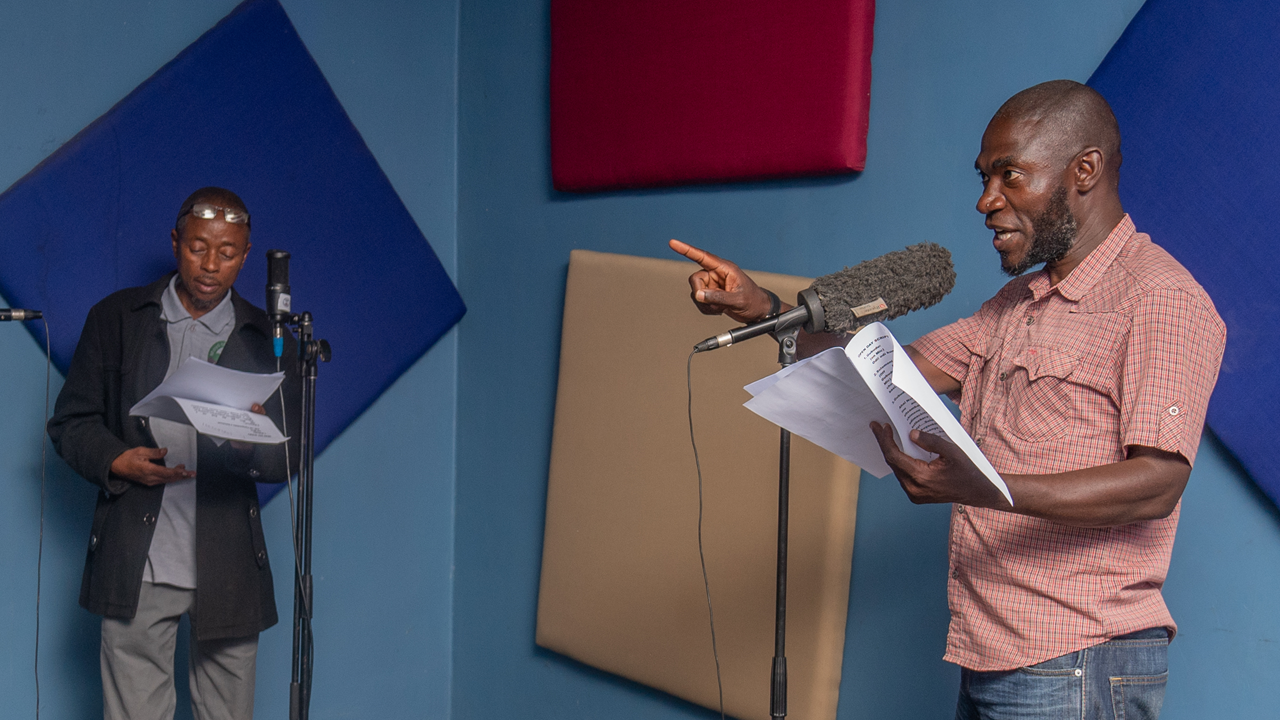
In the fight against malnutrition, the heart of the matter lies in the ability to cultivate food locally. For Enock Mpaseya, a 63-year-old Group Village Headman of GVH Taulo from Traditional Authority Ngwelero, Phalombe, this mission is more than just a duty; it’s a calling. As the community champion of integrated homestead farming, Enock stands as a pillar of inspiration and hope for those around him.
His journey began humbly, sparked by an initiative from Story Workshop (SWET), which engaged community leaders in a forum focused on nutrition promotion. This initiative not only fostered dialogue but also ignited a sense of responsibility among the leaders to create action plans that would empower their communities. Among these leaders, Enock emerged as a standout figure, not just advocating for nutrition but actively transforming his own homestead into a model of integrated farming.
Integrated homestead farming is a holistic approach that encompasses the cultivation of crops and the rearing of small livestock, including fish. This interdependent system ensures that households have access to all six food groups, creating a sustainable cycle where vegetable leaves nourish livestock, and manure enriches the soil. Water from fish ponds can be repurposed to nourish fruit trees and vegetables, forming a thriving ecosystem right at home.
As you step onto Enock’s compound, the vibrancy of life surrounds you. His three fish ponds glisten in the sunlight, each serving a unique purpose—one for catfish, another for Chambo, and a third for raising fingerlings. Initially reliant on a nearby river for water, Enock has now adapted, utilizing a borehole that he installed on his property. His commitment to farming extends beyond fish; he has built a rabbit kraal and rears pigs within his fenced yard, while his garden bursts with an array of colorful vegetables.
When asked about the secret to his success, Enock smiles knowingly. “This type of farming is for hard workers,” he explains. “I do this to motivate my community. Many come here to collect seeds, fish, and seedlings to start their own farms. But I don’t just hand out starter packs; I ensure they are serious about their commitment.”
Before distributing fingerlings, Enock requires potential fish farmers to construct their ponds first. Once they’ve demonstrated their dedication, he inspects the ponds and shares fingerlings, emphasizing the importance of nurturing them. “Fish farming is simple. They eat maize husks and chicken droppings—no need for fancy feeds. My children know they can simply go to the ponds whenever they want fish for dinner.”
Enock also raises chickens, providing both sustenance and income. Their droppings serve multiple purposes, enriching the soil for his vegetables and feeding the fish. After cleaning the fish ponds, he uses the mud as fertilizer, creating a closed-loop system that maximizes resources. He generously shares vegetable seeds with his community, aiming for the health of all his subjects.
“I don’t force anyone to take seeds from me; I want them to care for what they receive. My ultimate goal is for all my subjects to be healthy,” he emphasizes. Enock collaborates closely with his community promoters, encouraging them to engage with families, especially those with children under five, providing guidance on child care and nutrition.
Surrounding his ponds, Enock has planted a variety of fruit trees, further diversifying the food sources available to his community. He is committed to ensuring that all six food groups are accessible within his homestead. “The water I use now comes from my borehole, but before that, I would draw water from the river to nurture my plants and ponds,” he reflects, proud of the sustainable systems he has created.
Enock Mpaseya, GVH Taulo, is a beacon of hope in Taulo Village, TA Ngwelero, where Story Workshop is implementing the Risk Communication and Community Engagement project with funding from USAID through UNICEF. His story is one of resilience, innovation, and community empowerment—a proof to the power of integrated homestead farming in the battle against malnutrition.
Leaders Forum Session
Recent Articles

23 October 2024
Maria Mose's Journey: Hope, Heartbreak, and Redemption

05 September 2024
Dancing Towards a Brighter Future: How Gule Wamkulu is Reviving Education and Empowering Communities

22 October 2024
Zimachitika: A Transformative Force for Social Change in Malawi

22 April 2025
Impact Story: Amplifying Para Athlete Voices Through Radio Drama
